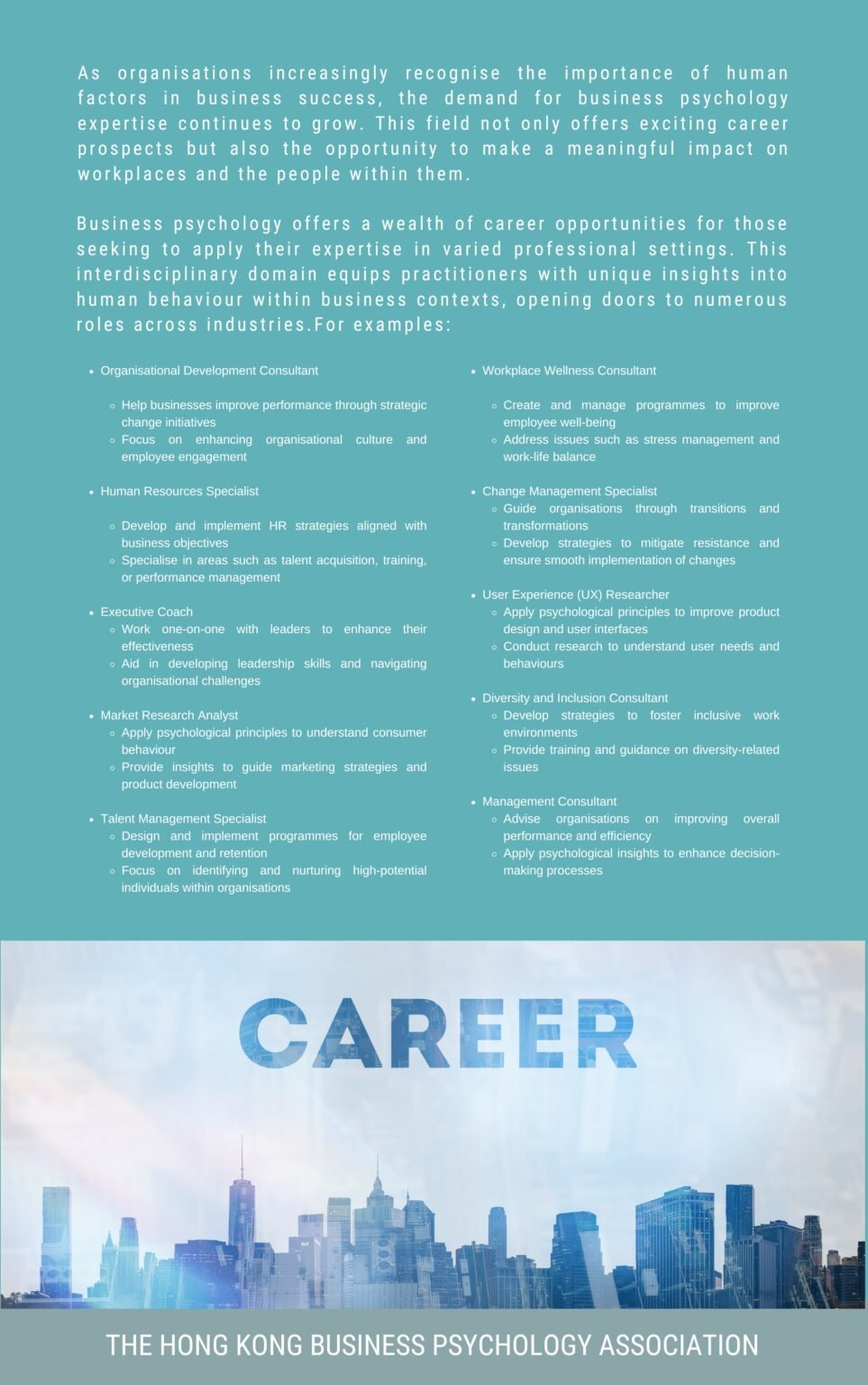The Versatile World of
Business Psychology Careers
Business psychology, blending psychological principles with organizational dynamics, opens doors to diverse professional paths. This field equips practitioners with insights into workplace behavior, enabling careers in organizational development, human resources, executive coaching, and market research. Business psychologists also excel in talent management, workplace wellness, and change management. Professionals in this field can find opportunities in corporations, consultancies, government agencies, and non-profit organisations. The ability to understand and influence human behaviour in work settings makes business psychologists valuable assets across various sectors.
Rethinking Workplace Motivation: Insights from Professor Barry Schwartz
The traditional perception of employees as mere components of a larger organisational machine is increasingly seen as inadequate. In his impactful TED Talk, “The Way We Think about Work Is Broken,” American psychologist Barry Schwartz challenges this notion by emphasising the importance of understanding the deeper motivations that drive individuals in the workplace. He asserts that the institutions within which people operate significantly shape human nature and behaviour.
Schwartz highlights that many employers often overlook the intangible rewards that employees seek, such as purpose, recognition, and opportunities for personal growth. These elements are crucial for fostering an engaged and motivated workforce, as they go beyond mere financial compensation. By recognising and addressing these intrinsic needs, organisations can create environments where individuals feel valued and fulfilled, leading to enhanced productivity and overall satisfaction.
The insights shared in Schwartz’s talk resonate strongly within the field of business psychology, which aims to cultivate healthier and more effective work environments. This discipline leverages psychological principles to enhance various aspects of organisational life, ensuring that workplace practices align with the needs of individuals. By prioritising the well-being of employees, organisations can foster a culture of engagement and innovation.
A commitment to integrating psychological insights into daily operations can transform not only individual experiences but also the broader organisational landscape. This approach can lead to improved performance, increased loyalty, and a more dynamic workplace culture. The importance of addressing mental health, diversity, and inclusion further underscores the role of psychology in crafting supportive and productive environments.
Ultimately, the call to rethink how work is approached is not just a reflection of changing attitudes but a necessity for future success. By fostering a comprehensive understanding of employee motivations and creating spaces that honour these needs, organisations can pave the way for a more fulfilling and effective workforce. In doing so, they not only enhance individual lives but also contribute to the long-term success and resilience of the organisation as a whole.




